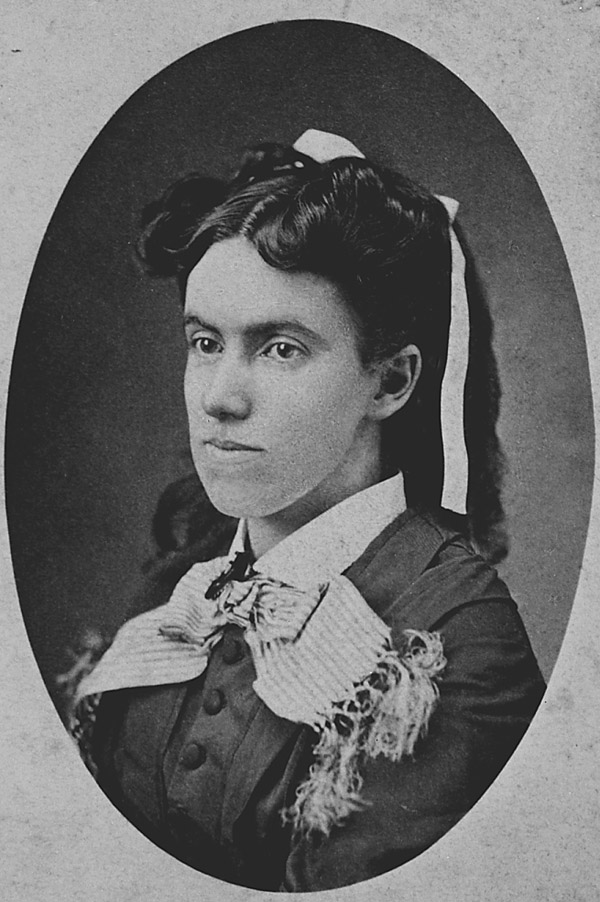
EDITOR’S NOTE: Each day during Baptist Press’ coverage of the Beijing Olympics, we are publishing a letter from a Southern Baptist missionary who served in China during the years before the People’s Republic of China was founded in 1949. Some of the letters reveal these missionaries’ great love for the people of China; others provide glimpses into what life was like for an American living abroad in the 19th century. We hope the collection helps Southern Baptists capture the passion of these great souls and understand the sacrifices they made so the good news of God’s love could be taken to what was, for them, the ends of the earth. The letter below was written by the venerable missionary Charlotte ‘Lottie’ Moon, who served in China from 1873 to 1912.
PINGTU, China–With that omniscience which awakens the wondering admiration of the uninitiated, a Baptist editor declared last year that it would be impossible for those who embrace the “new theology” to take a strong interest in foreign missions, that belief in a “second probation” is incompatible with earnest effort for the conversion of the heathen. Pondering the question of the indifference of Southern Baptists to missions, in the new light cast upon my ignorance by this wise editor, I conclude that the large majority of Southern Baptists have adopted the “new theology.” Else, why this strange indifference to missions? Why these scant contributions? Why does money fail to be forthcoming when approved men and women are asking to be sent to proclaim the “unsearchable riches of Christ” to the heathen?
The needs of these people press upon my soul, and I cannot be silent. It is grievous to think of these human souls going down to death without even one opportunity of hearing the name of Jesus. People talk vaguely about the heathen, picturing them as scarcely human, or at best as ignorant barbarians. If they could live among them as I do, they would find in the men much to respect and admire; in the women and girls they would see many sweet and loving traits of character. They would feel, pressing upon their heart and conscience, the duty of giving the Gospel to them. It does seem strange that when men and women can be found willing to risk life — or at least health and strength – in order that these people may hear the Gospel, that Christians withhold the means to send them. Once more I urge upon the consciences of my Christian brethren and sisters the claims of these people among whom I dwell. Here I am working alone in a city of many thousand inhabitants, with numberless villages clustered around or stretching away in the illuminate distance: How many can I reach?
It fills one with sorrow to see these people so earnest in their worship of false gods, seeking to work out their salvation by supposed works of merit, with no one to tell them of a better way. Then to remember the wealth hoarded in Christian coffers! The money lavished on fine dresses and costly living! Is it not time for Christian men and women to return to the simplicity of earlier times? Should we not press it home upon our consciences that the sole object of our conversion was not the salvation of our own souls, but that we might become co-workers with our Lord and Master in the conversion of the world?
I left Tungchow nearly two weeks ago, spending a Sabbath at Shangtswang on my way to this place. There were three services during the day, conducted by the younger brethren. A Presbyterian missionary, Dr. Nevius, who has just passed through here, told me that he stopped on his journey hither at a village about five miles from Shangtswang, and that he found that the Christians sustained a good reputation among the heathen.
I have been in Pingtu nearly a week, and find the people as kind and friendly as ever. A few days ago, visiting a family, I was talking with two men, and they volunteered the assurance that all like to have me there, that there are none who are unwilling. I rarely go on the street without invitations to visit, which I cannot accept for lack of time. At present I spend mornings at home, chiefly in teaching the girls, and go in the afternoon to some village. The weather is now beautiful for the latter work. It is delightful to go out into this fertile country, smiling with rich harvests, which the people are not busy gathering — a charming contrast to the Tungchow region, where a severe drought has prevailed and scarcely half crops have been made.
I am told that a telegraph line is being put up just outside the city limits. Though there will probably not be a station here, it will make me feel in the civilized world once more just to see the wire.
L. Moon
Oct. 3, 1887

















